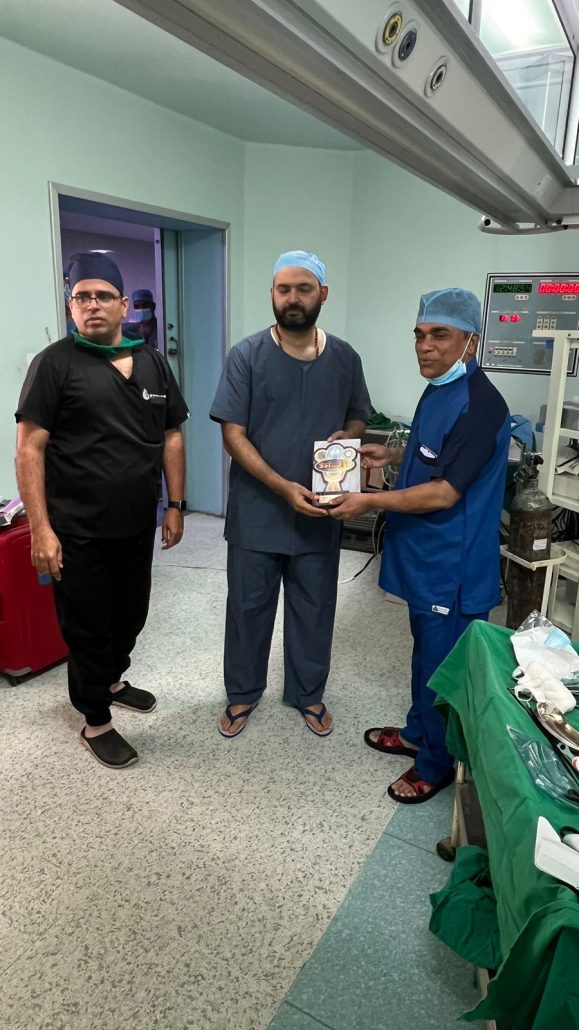Laparoscopic Inguinal hernia surgery


Life turns a full circle in one year. I Demonstrated live Laparoscopic Inguinal hernia repair at Thane surgical society on this Saturday for a recurrent inguinal hernia. Thank you everyone for being with me in tough times. It’s really heartening to be back from where I started.
I completed my post-graduation in surgery way back in days when we had no Laparoscopic surgery equipment and the necessary training available at my teaching hospital. I landed in Pune coming from a tier 2 city purely for my passion for this speciality. Treating surgical problems by minimal access was the way to go. I spent a good 15 years mastering the art of keyhole surgery and at that very moment met with a freak accident last year in March. The accident of free fall in a lift from 4th floor to basement changed everything in my life. Being operated for a fracture of the thigh bone after this accident and being bed ridden for 3 months after a very active surgical career was tough. I went through a sea of emotions, received lots of support but we are always alone even if we are in a crowd. Ultimately it is me who had to get over all the bad past memories of this debilitating trauma.
And here I am back to be my best.


 +919011100010
+919011100010 




